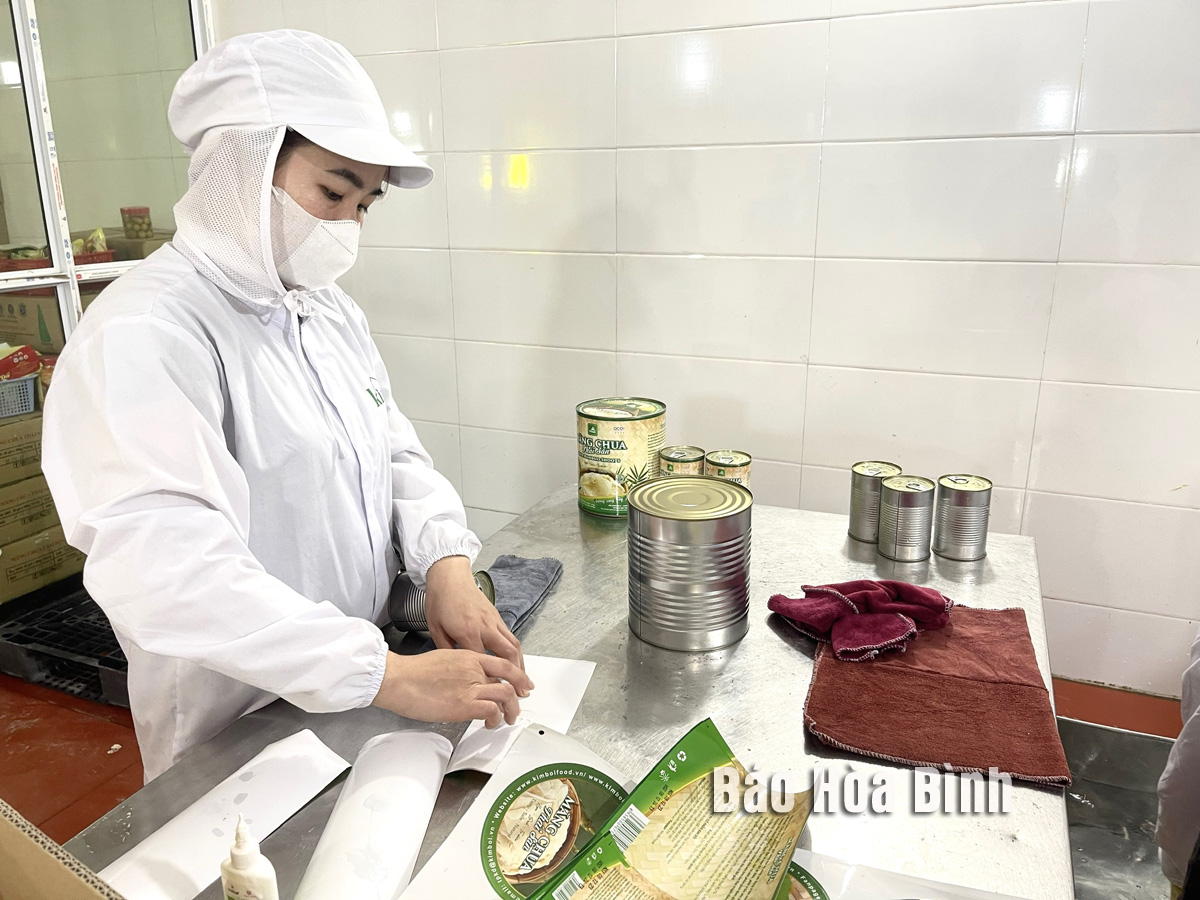



Canned pickled bamboo shoots of Kim Boi joint Stock Company in Ba Hang Doi town of Lac Thuy district are produced in line with closed production line, ensuring food hygiene and safety requirements.
The Green Life Cooperative, located in Thuong Tien village, Hop Tien commune, Kim Boi district, is currently producing around 15,000 litres of honey annually, earning over 1.8 billion VND (72,520 USD) in revenue. Its honey has been recognised as a provincial-level four-star OCOP product. The cooperative aims to export their products to the UK in the near future. In addition to improving honey quality and production processes, the cooperative has also enhanced its packaging design.
Dinh Cong Thuan, the cooperative’s director, said that to ensure that the quality of Thuong Tien honey meets food safety standards for export, it has put into operation an automatic filling system, marking a significant milestone in applying technology to production. It helps maintain the product quality, increases labour productivity, and reduces the risk of contamination, thereby ensuring food safety. Additionally, the cooperative receives guidance from R.Y.B joint Stock Company and other relevant entities to improve product labeling, ensuring traceability and compliance with the requirements of importing countries.
To support agricultural production and processing units, various programmes, projects, and policies have been integrated to assist stakeholders in the development of products, including redesigning packaging and OCOP labels, developing plans to upgrade agricultural products for export, establishing sale points to promote and sell OCOP products, and implementing traceability management systems.
According to the provincial agro-forestry-fishery quality assurance sub-department, since the beginning of the year, it has organised seven conferences and training sessions on agricultural material quality management and food safety. The sub-department has also guided and granted food safety certificates to 53 agro-forestry-fishery production and business establishments. Furthermore, it has issued codes for six plum and grapefruit growing areas that are eligible for export to the EU, the US, and New Zealand.
To assist production facilities and businesses in enhancing product quality for boosting domestic consumption and expanding export markets, the sub-department has conducted surveys and assessments to propose support for 27 establishments to apply safe production processes according to Vietnamese Good Agricultural Practices (VietGAP), Good Agricultural Practices (GlobalGAP), organic, International Standards Organisation (ISO), and Hazard Analysis and Critical Control Points (HACCP) standards.
Product promotion activities have been stepped up with the engagement of 77 enterprises and cooperatives, showcasing a total of 360 products. Of these, 50 have been introduced and connected to take part in trade promotion activities and exhibitions at home and abroad.
Head of the agro-forestry-fishery quality assurance sub-department Le Minh Thuy said that the province currently has over 150 products recognised as 3-4-star OCOP products.
To achieve this year's export goal, the sub-department is focusing on implementing a range of solutions to support cooperatives and units engaged in agricultural production in the remaining months, including assisting organisations and individuals involved in safe food production chains, connecting businesses within these chains in participating fairs which promote safe agricultural produce, enhancing support for production facilities applying VietGAP, GlobalGAP, and organic standards, and granting codes for farming areas and packaging facilities for export.
It will also strengthen monitoring of food safety for agro-aquatic products and implement traceability to address any violations in line with state regulations.